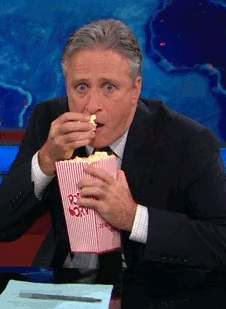PTO thinks you might be trying to patent two+ things in one application. You must elect one claim set. The other claims can go into a continuation or divisional application if you want to pursue those claims too.
Pat's Patent Blog
Tuesday, March 8, 2022
Sunday, February 25, 2018
Markush groups and transitional phrases
Ex parte Dotter, 12 USPQ 382 (Bd. App. 1931), cited in MPEP §2173.05(h), holds that it is improper to employ the term "comprising" instead of "consisting of" with respect to a Markush group. The use of "comprising" to introduce the Markush group is open-ended and indefinite.
Thursday, February 1, 2018
Continuation Patent Applications: 10 Reasons You Should Consider Filing: IP Law Bulletin
Continuation Patent Applications: 10 Reasons You Should Consider Filing: IP Law Bulletin: "Go On the Offensive. Continuation applications can also be used offensively. For example, one can file a continuation with claims covering a competitor’s product as long as it is described in the original parent application."
Wednesday, October 25, 2017
Judge throws out Allergan patent, slams company’s Native American deal | Ars Technica
Judge throws out Allergan patent, slams company’s Native American deal | Ars Technica:
"The ruling by US Circuit Judge William Bryson could have wide effects on the patent landscape because the Restasis patents are at the center of a novel legal strategy that involves using Native American sovereignty rights to avoid certain types of patent reviews, called inter partes reviews, or IPRs."
"The ruling by US Circuit Judge William Bryson could have wide effects on the patent landscape because the Restasis patents are at the center of a novel legal strategy that involves using Native American sovereignty rights to avoid certain types of patent reviews, called inter partes reviews, or IPRs."
Thursday, March 9, 2017
Software is intangible, but not abstract
Enfish LLC v. Microsoft Corp. (Fed. Cir. May 12, 2016)
In the USPTO Memorandum, the Office noted:
"The Federal Circuit in Enfish stated that certain claims directed to improvements in computer related technology, including claims directed to software, are not necessarily abstract (Step 2A). The court specifically noted that some improvements in computer-related technology, such as chip architecture or an LED display, when appropriately claimed, are undoubtedly not abstract. Explaining that software can make non-abstract improvements to computer technology just as hardware can, the court noted that claims directed to software, as opposed to hardware, also are not inherently abstract."
In the USPTO Memorandum, the Office noted:
"The Federal Circuit in Enfish stated that certain claims directed to improvements in computer related technology, including claims directed to software, are not necessarily abstract (Step 2A). The court specifically noted that some improvements in computer-related technology, such as chip architecture or an LED display, when appropriately claimed, are undoubtedly not abstract. Explaining that software can make non-abstract improvements to computer technology just as hardware can, the court noted that claims directed to software, as opposed to hardware, also are not inherently abstract."
Saturday, October 29, 2016
Portland Craft Beer: Drink Tanks v. GrowlerWerks, a patent lawsuit examination
Portland Craft Beer: Drink Tanks v. GrowlerWerks, a patent lawsuit examination:
"
"
- 35 U.S.C. §101 – Patentable subject matter - the new invention must be in a category for which a patent may be granted
- 35 U.S.C. §102 – Novel - cannot be previously invented, publicly disclosed or for sale in the market
- 35 U.S.C. §103 – Non-obvious - cannot be obvious to combine well-known parts
- 35 U.S.C. §112 – Enabling description - Must contain a written description of the invention and the manner and process of making and using it."
Monday, September 26, 2016
Subscribe to:
Comments (Atom)
